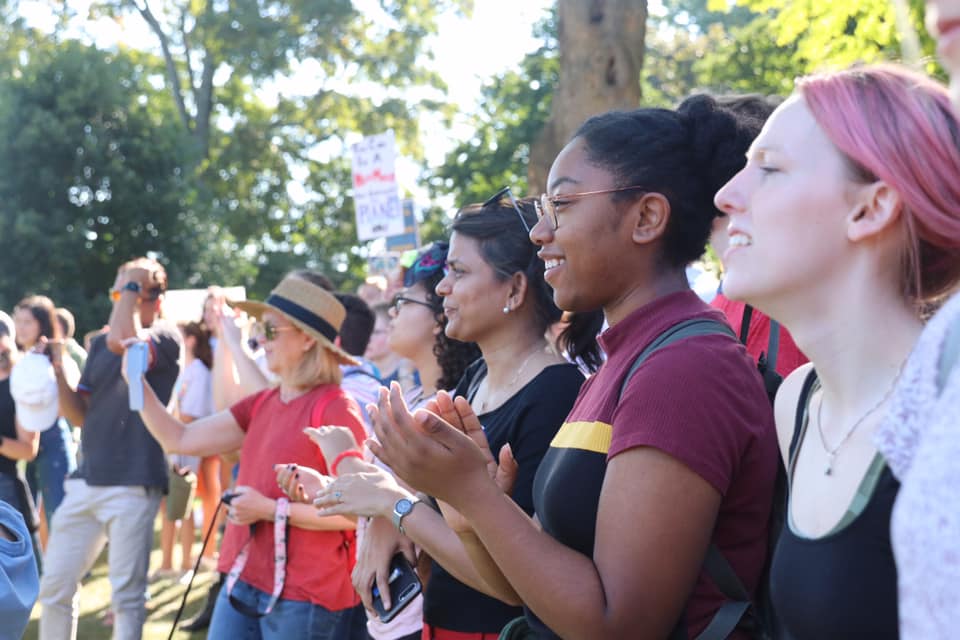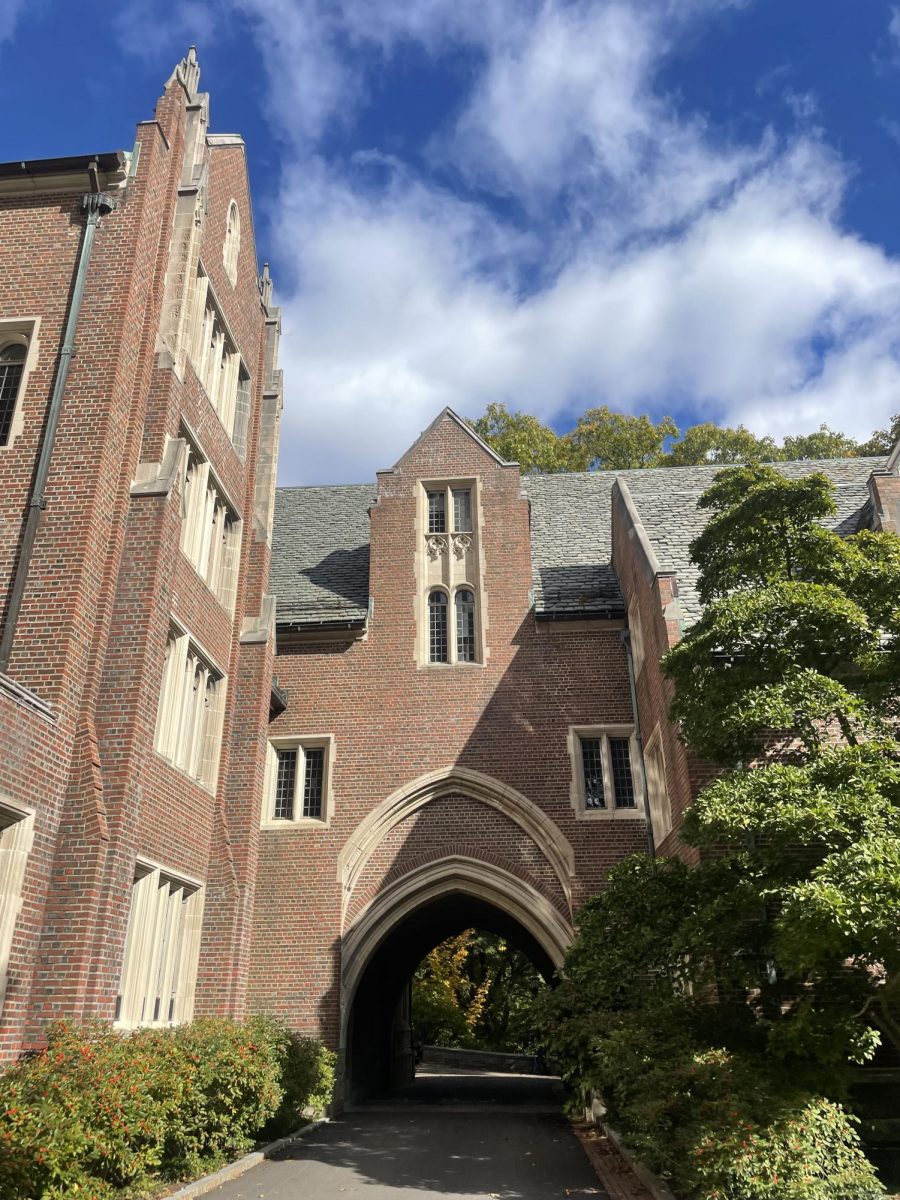With about four million people participating in the global climate strike, Sept. 20 became a momentous day for climate change activists. Over 2,500 events were scheduled in at least 163 countries on all seven continents. Within the Wellesley community, hundreds of students, children and adults participated in a strike that started at Wellesley College’s Chapel and ended at Wellesley Town Hall.
People of all ages and backgrounds united to march from the chapel, chanting anthems and holding handmade signs to urge politicians to support legislation that protects marginalized communities and future generations. Upon arrival at Wellesley Town Hall, individuals shared land acknowledgements, slam poetry and personal experiences facing the effects of climate change.
The marchers demanded change from both Wellesley College and the town of Wellesley. Students led by EnAct rallied in hopes that the college will convert all of its power usage to renewable energy. Standing on a bench in front of the crowd, EnAct leader Claire Hayhow ’21 shouted these demands into a megaphone: “We demand that Wellesley College go 100 percent renewable by 2025. And we will not allow administrators to hold the threat of taking financial aid away over our heads to stop it.” If Wellesley follows EnAct’s lead, it will become one of a string of colleges that are attempting to divest from the fossil fuel industry. Harvard University, for example, is planning to be carbon-neutral by 2026, while the entire University of California (UC) system has announced just this week a plan to divest from fossil fuels altogether.
Wellesley College was not the only institution called to greater climate action on Friday. Citizens of the town of Wellesley of all ages were also present, as were multiple members of the Wellesley Town Meeting, the town’s legislative body. Two Wellesley High School students read a statement declaring their intentions for renewable energy in their hometown, placing particular emphasis on the effect of climate change on marginalized communities. “We demand from the town of Wellesley a formal commitment to go to 100 percentrenewable energy by 2020, and a plan to get there by 2025,” the students said. “We demand that this plan not further impact already marginalized communities, and that this is a fair and just transition for all of us.”
“I’m really happy to be a part of a group that is standing up and speaking out against such a serious issue,” Annie Fisher, 8th grade student at Wellesley High School said.
Other marchers also emphasized the necessity of racial justice in environmentalism. “I think it’s important to show solidarity for environmentalism and all of the groups it affects because it affects groups of color disproportionately. The term environmental justice actually originated from Black Americans who are working to improve their own community, and it kind of trickled out to everyone else. It’s important that we support them back for it,” stated Christie Li ’19.
Many speakers emphasized the importance of understanding climate change’s impacts on communities of color. For instance, Sarah Sansón Hernández ’21, a student of Puerto Rican descent and Wellesley College Government’s Organization Chair, spoke about her feelings when Hurricane Maria struck her home country.
“The reason why I’m participating in [the Climate Strike] is essentially because my home land was destroyed by very extreme weather conditions, which climate change has been attributed to have increased. I think that it’s very important for us to take care of our environment and to prevent these natural disasters from displacing even more people than they have already,” stated Hernández.
Hayhow reiterated her belief that students can pressure Wellesley towards sustainability. “I know it doesn’t always feel like it,” she said. “But we, right here, are the ones with the power.”






